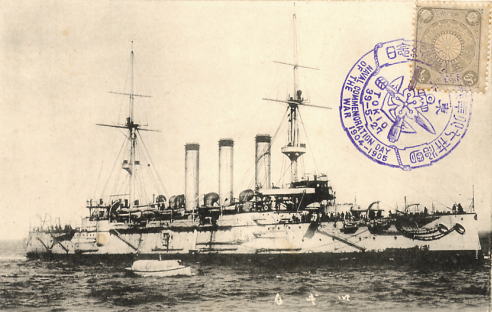1. Early Life and Education
Masaichi Niimi was born on February 4, 1887, in what is now Asakita Ward, Hiroshima City, Hiroshima Prefecture, as the second son to a family engaged in farming and soy sauce production. His father was Niimi Sengoro. He attended Hiroshima Prefectural Tadami Middle School before entering the Imperial Japanese Naval Academy on December 2, 1905. He graduated from the academy's 36th class on November 21, 1908, ranking 14th out of 191 cadets upon graduation, having entered as 35th out of 200. Among his classmates was Mito Haruzo, who also became a Vice Admiral. Niimi's wife, Sumiko, was the sister of Admiral Seizo Kobayashi.
3. Strategic Thought and Analysis
Masaichi Niimi was recognized as one of the Imperial Japanese Navy's leading intellectuals, particularly for his expertise in naval artillery and his strong grasp of English, having studied international law at Oxford University. His strategic insights proved remarkably prescient regarding the nature of future warfare.
During his tenure as naval attaché assistant in the United Kingdom from 1923 to 1925, he conducted extensive research into the history of World War I. Upon his return to Japan, he submitted two crucial reports to the Imperial Japanese Navy General Staff: "Opinion Paper on the Improvement of Naval Central Military Command Organization" and "Opinion Paper on Protracted Warfare." In these documents, Niimi argued that the next global conflict would be a total war and that the concept of a decisive fleet battle (艦隊決戦Kantai KessenJapanese) would not materialize. He emphasized the necessity of the Imperial Headquarters functioning as a unified political-military body and, most critically, highlighted the urgent need for measures to defend maritime traffic lines. Although his views were initially considered unconventional by his peers, the subsequent course of the Pacific War ultimately validated his predictions regarding total war and the vital importance of sea lane defense.
As a Naval War College instructor for a total of five years, Niimi consistently advocated for his strategic principles. While serving as Director of the Naval Education Bureau, he attempted to establish a Naval Defense School to implement comprehensive measures for maritime traffic defense. However, this initiative faced opposition from the Naval Affairs Bureau, led by Shigeyoshi Inoue, and ultimately resulted in the establishment of only the Naval Mine School. Although Niimi and Inoue shared a pro-Anglo-American stance, they held differing views on the curriculum at the Naval War College and the unification of the engineering and line officer branches.
Niimi also held strong convictions regarding international relations. Even after the signing of the Anti-Comintern Pact between Japan and Germany, he believed that Britain desired an alliance with Japan, a conclusion he drew from the favorable treatment extended to Prince Chichibu during the coronation of King George VI. He further argued that given the immense national power demonstrated by the United States in World War I, Japan should align itself with the US and UK and avoid further rapprochement with Germany and Italy. Despite his persistent warnings, his advice was not heeded.
4. Post-War Activities
After his retirement from active service in 1944 and the conclusion of World War II, Masaichi Niimi remained dedicated to naval affairs and historical research. He served as a special lecturer for the Maritime Self-Defense Force Staff College, contributing his extensive experience and strategic insights to the new generation of naval officers. He also became the supreme advisor for the "Naval Reflection Meeting" (海軍反省会Kaigun HanseikaiJapanese), a re-established organization of former naval officers known as the Suikokai, where he continued to share his perspectives on the Imperial Japanese Navy's history and lessons learned.
Niimi placed great importance on the study of war history. From the age of 82 to 84, he authored the comprehensive work, History of World War II War Leadership (第二次世界大戦戦争指導史Dainiji Sekai Taisen Sensō ShidōshiJapanese). This significant book was eventually published when he was 97 years old. The work was presented to Emperor Showa, who expressed pleasure at its publication, and it was also gifted to Crown Prince Akihito.
5. Personal Life and Character
Masaichi Niimi was known for his mild and non-confrontational personality. He preferred not to impose his opinions forcefully and generally avoided disputes with others. Despite his high rank and strategic acumen, he was described as a person who did not insist on his own views. This temperament earned him the respect and affection of many of his subordinates and peers, including Atsushi Oi, who admired him as the longest-living admiral of the navy. Niimi's remarkable longevity, living to the age of 106, also contributed to his symbolic status as a revered elder statesman among former naval officers.
6. Death and Legacy
Masaichi Niimi died on April 2, 1993, at the extraordinary age of 106 years. At the time of his death, he held the unique distinction of being the last surviving vice-admiral of the Imperial Japanese Navy. His legacy is primarily defined by his profound strategic insights, particularly his early and accurate predictions regarding the nature of total war and the critical importance of sea lane defense, which were ultimately validated by the course of the Pacific War. His post-war dedication to historical research and his efforts to share his knowledge with the Maritime Self-Defense Force further cemented his role as a significant figure in Japanese naval history.
7. Awards and Honors
Masaichi Niimi received several official decorations and held various court ranks throughout his distinguished career, and also authored significant works on naval history.
- Order of the Sacred Treasure, 1st Class (July 8, 1942)
- Court Ranks:
- Junior Eighth Rank (March 22, 1910)
- Junior Seventh Rank (February 10, 1915)
7.1. Major Writings
- History of World War II War Leadership (第二次世界大戦戦争指導史Dainiji Sekai Taisen Sensō ShidōshiJapanese), Hara Shobo, 1984. ISBN 4-562-01516-0.
- The Common Sense of the Japanese Navy: Admiral Masaichi Niimi - Autobiography and Reminiscences (日本海軍の良識 提督 新見政一 自伝と追想Nihon Kaigun no Ryoshiki Teitoku Niimi Masaichi: Jiden to TsuitōJapanese), edited by Teitoku Niimi Masaichi Kankokai, Hara Shobo, 1995. ISBN 4-562-02696-0.
